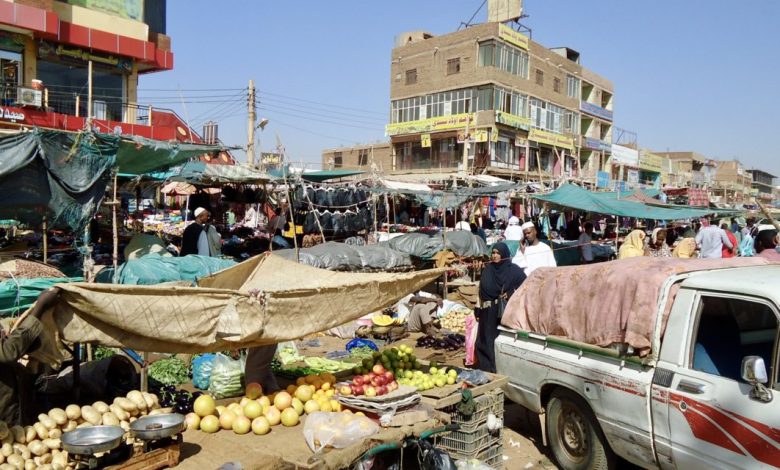Sudanese 2024 Economy: Bad Scenarios

Report – Rehab Abdullah
The year 2023 witnessed the deterioration and complete collapse of the economy, leaving its mark with very difficult living conditions. The year 2023 ended with a harsh tragedy for all economic activities. The economic deterioration weighs heavily on citizens because they are the ones who bear the burden of rising prices, unemployment, and foreign debt. However, the question that imposes itself revolves around what are the expectations for the economy in the current 2024.
Post-war economic scenarios
Economists expected that the Sudanese economy would continue to deteriorate, and that foreign currencies would continue to rise significantly against the national currency, adding that the dollar would rise in light of the problems that the economy is suffering from and the cessation of import and export movements in light of the deterioration witnessed in living conditions and the inability of citizens to secure their daily living due to the prolongation of the war and the lack of financial resources for citizens to purchase many goods and products due to limited cash in hand.
Slow growth rates
Economist Dr. Haitham Fathi told “Sudan Events” that one of the most prominent devastating economic impacts of the war is the deterioration of economic conditions and the decline in the value of the national currency. There will be a sharp slowdown in economic growth rates and rising inflation rates. He pointed out that the war has exacerbated the crisis of basic services such as electricity, water, health, education and these factors ed to “complete paralysis in state institutions and public life in Khartoum” and led to the complete closure of schools and universities. He stressed that the economy is going from bad to worse, due to the absence of a political solution, and the continuation of declared and undeclared American and European sanctions, explaining that any improvement in the economy after the war in Khartoum is linked to the extent of external openness, regionally and internationally. He added that the war led to the collapse of economic activities in the country and caused great damage to the infrastructure and strategic assets and property of the state. It plundered and looted the personal property of citizens and led to an increase in the displacement of a large number of citizens of the capital and other states. There is a complete collapse of the standard of living of families since the beginning of the war, which led to a rise in “extreme” poverty rates and unemployment as a result of these developments.
Loss of job opportunities
Fathi pointed out that the Sudanese industrial sector in Khartoum, South Darfur and the Gezira suffered great losses, as it ranked second in terms of the destruction caused by the war after the losses of the residential and service sector, the value of which is estimated at about 10 billion dollars, in addition to the loss of about one million job opportunities due to the destruction in the industry, agriculture, trade, and services sectors related to the industrial sector in Khartoum and in the unstable states. Therefore, the high unemployment rate leads to a decrease in the economic growth of the community accompanied by production and consumer spending decline, which negatively impact the economy as a whole.
Therefore, it is expected that the number of young people willing to immigrate to another country will rise to 40% of young people which affects the spread of the disease and high death rates, and its impacts extend for years, as a 1% increase in the unemployment rate reduces the gross domestic product by 2%.
High cost of living
Fathi confirmed that the cost of living will increase, particularly as the agricultural sector, which contributes – directly or indirectly – to the income of 75% of the population is vulnerable to the economic impacts of war such as high fuel prices, the high cost of fertilizers and agricultural pesticides, and government taxes and fees.
Trade imbalance
In this context, the Dean of the Faculty of Economics at Sudan University of Science & Technology, Dr. Abdul-Azim Al-Mahal, expected that the impacts of the war would continue for years to come, with the continued imbalance in the balance of payments, the deterioration of the currency, and general economic depression and lack of confidence. However, in his interview with “Sudan Events,” Al-Mahal stressed that all hopes are that war will be a turning point towards production.



